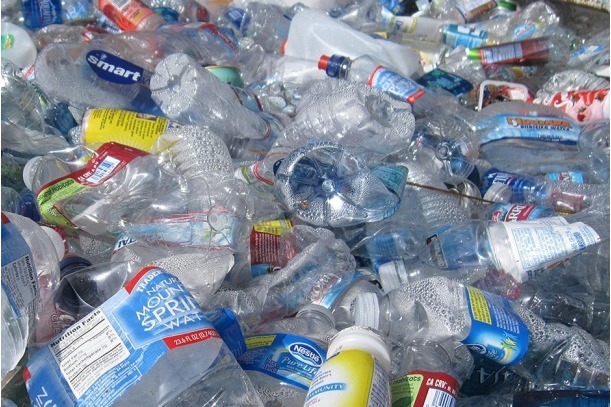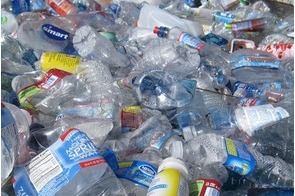We can no longer ignore the environmental and health threats of plastics in Nigeria

Summary
Nigeria is among the largest contributors to what now constitutes a major threat to people's health, the ecosystem and is precipitating natural disasters.
How many times do you go to the mall, supermarket or corner shop in a week? On most occasions when you made that visit in the past, you returned with more than one plastic bag. Depending on the nature of the items you purchased, frozen food and canned food items were placed in separate plastic bags; drinks could not be put in the same bags as toiletries, and so on.
When you retrieved those items, some of which were packaged with plastic materials, you probably discarded them in the bin. Some of the plastic waste ended up in landfills and oceans where they will take about four centuries to decompose. The time frame for plastic decomposition, according to some reports, is a thousand years.
Then, there are those plastics that are either littered or not properly disposed. Mismanaged plastic waste is a global environmental menace and Nigeria is among the largest contributors to what now constitutes a major threat to people's health, the ecosystem and is precipitating natural disasters.
According to Our World in Data, an online publication based at the University of Oxford, while annual production of plastics increased to 381 million tonnes in 2015, the cumulative global production of plastics reached 7.8 billion tonnes. This is more than the world's population.
China accounts for the highest share of mismanaged plastic waste, contributing around 28 per cent of the global total. Nigeria contributed 2.7 per cent in 2015. However, by 2025, Nigeria will account for an estimated 3.59 per cent of the total mismanaged plastic waste in the world, higher than the United States (0.49 per cent) and Brazil (1.38 per cent), which have larger populations.
In Lagos, Nigeria's commercial hub and most populous city, it is very disturbing to see, without class exception, motorists and their passengers wind down the windows and dump plastic bags, bottles, sachet water bags, and other types of waste on the streets and highways. Gutters across Nigerian cities and towns are clogged with plastic waste, becoming breeding grounds for mosquitoes and various diseases and leading to flooding.
The negative environmental and health effects of plastic waste have become as pervasive as the indiscriminate disposal of plastics. For this reason, we can no longer afford the luxury of indifference and ignorance to the consequences of our daily habits that are harming the environment.
Scientists estimate that about eight million metric tonnes of plastics enter the oceans each year. (This is equivalent to about 1.5 million large trucks and SUVs being dumped in the ocean every year.) An estimated 150 million metric tonnes of plastics have been dumped in marine environments over the years. According to a report by Ellen MacArthur Foundation and the World Economic Forum, there will be more plastics than fish in the oceans by 2050. Nigerian rivers are among the top 20 polluting rivers – that is, rivers from which plastic waste is transported to oceans.
These are not just statistics for the sake of it. Plastics in the oceans pose a real danger to nearly 700 aquatic species, from plankton, seabirds to the largest whales. Researchers from the University of Ghent in Belgium have shown that seafood eaters ingest up to 11,000 plastic particles every year. Microplastics – small plastic pieces – accumulate in body tissues and over time, they could pose serious health risk.
But plastics are not just a public health problem or an oceans issue, it is one of the major contributors to climate change. Plastics are crude oil-based products. Therefore, their production emits greenhouse gases (GHG) into the atmosphere, thereby causing global warming. About 40 per cent of plastics are used as packaging, much of which is single use or disposable. When plankton inject microplastics, their ability to remove carbon dioxide (CO2) from the atmosphere is reduced. The burning of plastics also releases toxic gases into the atmosphere.
The world is currently in a climate emergency. Scientists have said the last five years (2015-2019) were the warmest years on record. 2019 was the second warmest, after 2016 – adjudged to be the hottest year in history. Climate impact does not only include the extreme weather events such as drought, floods, extreme heat that are ravaging different parts of the world; the World Health Organisation (WHO) has warned that rising temperature is also linked to the spread of infectious diseases such as malaria. Experts have warned that climate change poses the threat of new diseases and future disease outbreaks.
A new outbreak of Lassa fever in Nigeria claimed 41 lives across 19 states as at last month, said the Nigeria Centre for Disease Control (NCDC). WHO said humans usually become infected with Lassa virus through exposure to food or household items contaminated with urine or feces of infected rodents. All these health emergencies and climate disasters call for changes in our consumption patterns and disposition towards waste management.
Nigeria is one of the few countries that have not put in place any form of legislation to regulate the use of plastic bags. A report by United Nations Environment Programme (UNEP) showed that as of July 2018, 127 out of 192 countries reviewed had adopted some form of legislation to regulate plastic bags. Rwanda was a pioneer in banning single-use plastic bags; Kenya introduced the world’s toughest rules on the use of plastics in 2017. Regulations on plastics in other countries like South Africa include taxation and levies. In some countries, shoppers pay for plastic bags.
The bill passed by the House of Representatives during the 8th National Assembly in May 2019 to prohibit the use, manufacture and importation of plastic bags in Nigeria is yet to be passed by the Senate. While a plastic regulation in Nigeria is a long overdue reform, Nigerians need to develop more awareness to sustainability along with an ethical orientation to waste disposal and management. Sustainability is about mobilizing our moral responsibility as custodians of the environment.
It's time to find solutions to plastic waste generated by the 200 million Nigerians. One of the solutions to reduce plastic waste is reuse and recycling. But we can start by using less plastics. You can go to the supermarket with your own non-plastic bag to collect the items you buy. Eventually, Nigerians should aim to adopt zero-waste models already being implemented around the world.
Related
-
How South Africa is leading the African circular plastics industry
The ICIS Mechanical Recycling Supply Tracker has identified just under 50 mechanical plastic recycling plants for PET, PE ...
-
CEO using the same computer for over 10 years to save the planet
“It was my ambition when I got the notebook ten years ago to keep it for many years,” Sören Enholm, CEO of ...
-
Global e-waste surging, up 21 per cent in 5 years
The findings of the Global E-waste Monitor 2020 suggest that humanity is not sufficiently implementing the SDGs.








